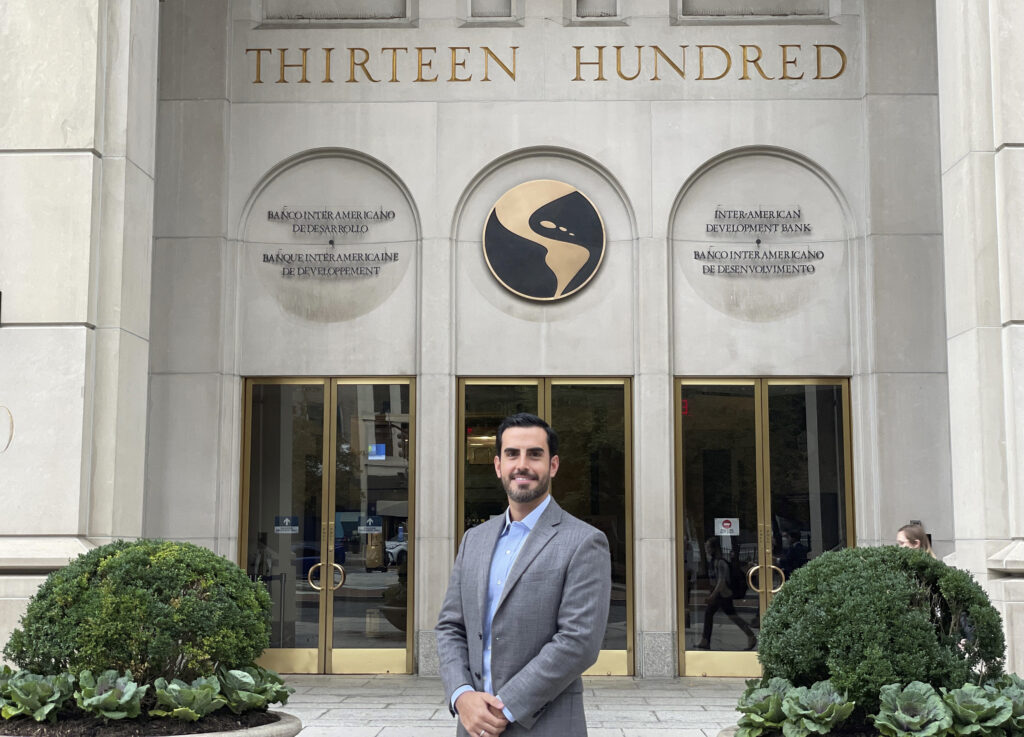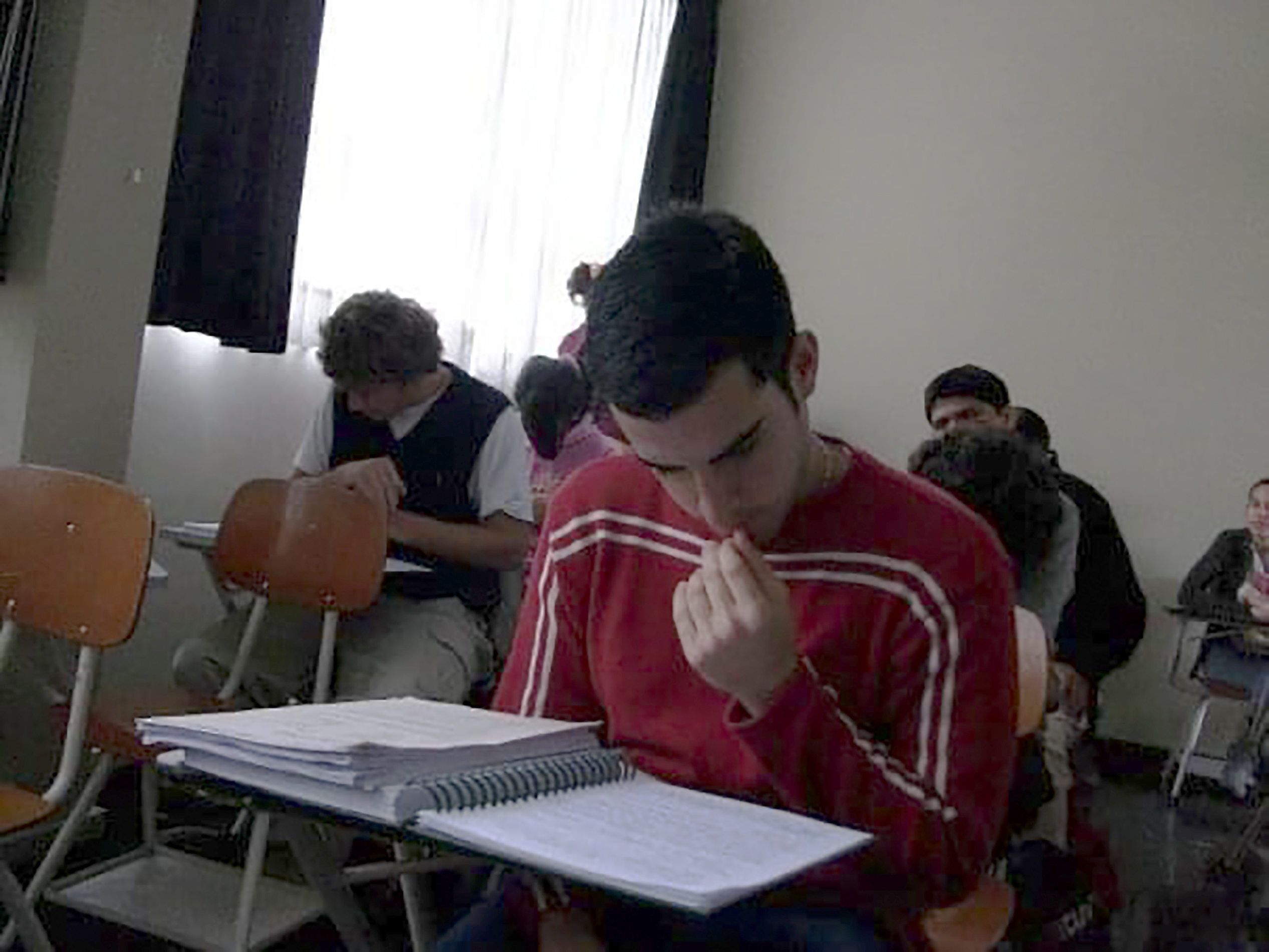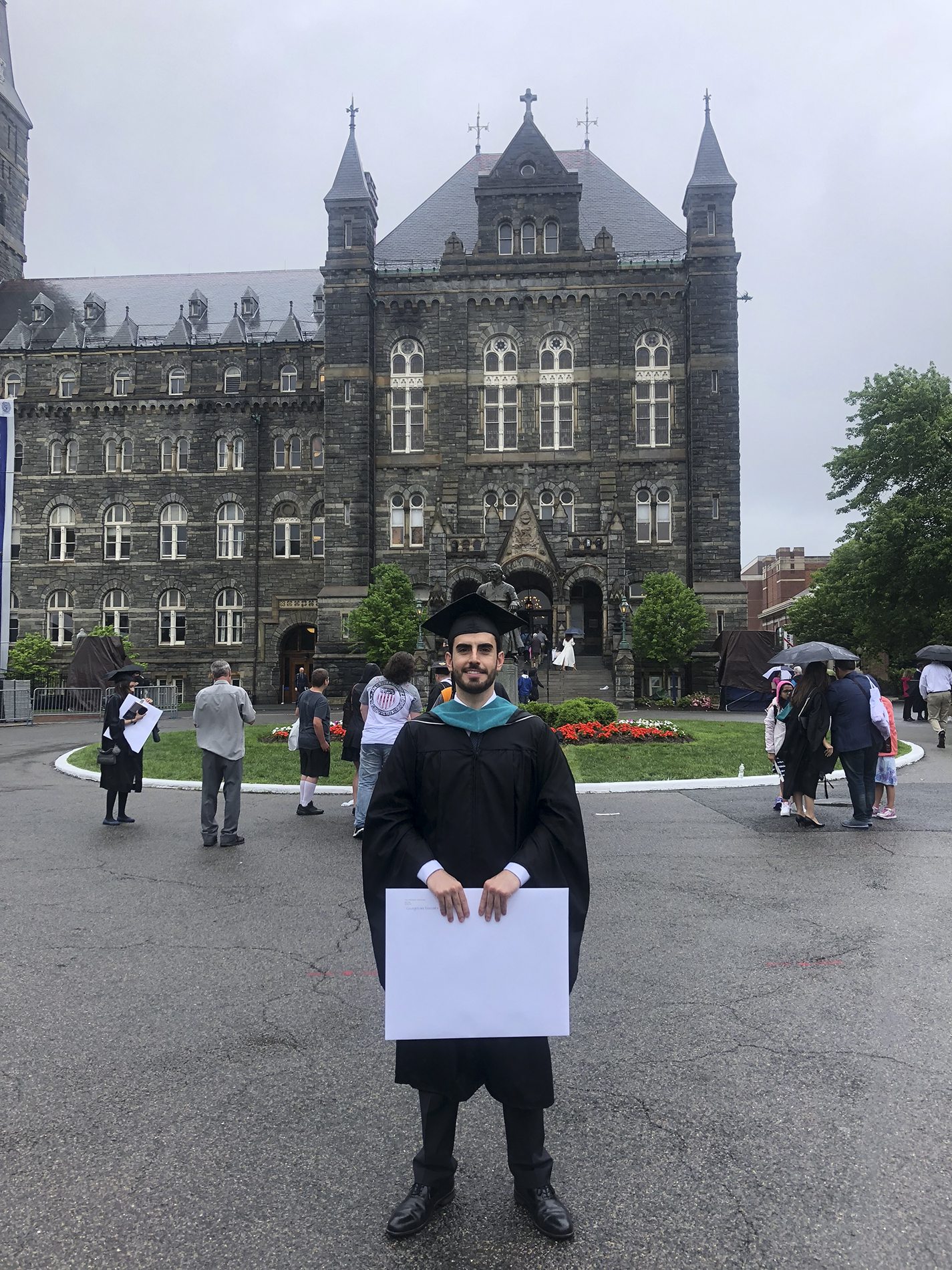Fiorella Palmieri
The content of this news item has been machine translated and may contain some inaccuracies with respect to the original content published in Spanish.
In 2015, after going through a long selection process, Daniel was awarded a one-and-a-half year contract as a human resources consultant at the Inter-American Development Bank (IDB) in Washington D.C. Due to his good performance, his contract with the IDB was extended and he moved on to new and more challenging positions. At the age of 32, Daniel is an expert in human resources issues in a global organisation. In this interview, he shares his experiences and opinions on the job market, and tells us how his education at PUCP helped him to work in an international organisation.
I was searching the Internet for international work experience in various corporations, until I came across the IDB's calls for applications. For four months I applied for several positions related to human resources work. Finally, I was called for a process that lasted another four or five months. I went through English tests, technical knowledge tests, case reviews and also interview panels. At the time, I had a job in Peru, and I lived between anguish and excitement every time I made it to a new phase of the process. When I was selected, I had to wait to obtain the work visa managed by the IDB. I could not claim victory until I signed the contract. So I left everything in Peru to move to Washington without knowing anyone.
"You have to be humble and open to listen to constructive criticism from those who know better, because it really is an opportunity for improvement".
It is a great challenge to work in fields outside psychology. I started to look at budgeting, management and finance, which are more relevant for those who studied economics or accounting. I had to start almost from scratch. You have to be humble and open to listen to constructive criticism from those who know better, because they are really opportunities for improvement.
You have to be very aware of what is happening in the world. For example, nowadays, all the issues of diversity, inclusion, equity and gender equality are very relevant in companies and international organisations. So, we want to anticipate in the design of policies and benefits that promote these aspects, and we are looking for professionals who know these issues. The labour market has also changed due to the pandemic with the massive implementation of remote work.
"The issues of diversity, inclusion, equity and gender equality are very relevant in companies and international organisations.

It is very important to draw up a short or medium-term plan and to be able to have greater control over the development of our careers. Greater professional specialisation should also be encouraged, which, in my opinion, is not as important in Peru as it is in other countries. Professionals in Peru tend to know a bit of everything and neglect specialisation, which makes you an expert in one area. I would also recommend that they concentrate on mastering spoken and written English, as well as other languages that open doors.
I think the PUCP profile is research-oriented. I have done postgraduate studies at other universities and I have not seen the level of academic or research demands that the PUCP has. The training I received at the university encourages me to be a rigorous professional with my sources of information in order to develop a project. I would also highlight the comprehensive training. As students and graduates of our University, we have a multicultural appetite that helps us to adapt to different contexts. This is very important to broaden your options to compete in a global labour market. In addition, PUCP's education encourages us to connect with the reality of the country, and to work to understand and improve it.


"Students and graduates of our University have a multicultural appetite that helps us to adapt to diverse contexts".
Leaving a positive footprint in everything I do, and thinking about how to contribute, support and generate value is a motivation for me. Social commitment is something we should all have. In my role, I seek to promote an environment of work-life balance for employees. That is why what I value most in my day-to-day work is the feeling that I contribute to an organisation that promotes major development projects in Latin America and the Caribbean. Those of us who work at the IDB identify with being able to generate value for our countries, whether in public policy or in administrative roles.
"Leaving a positive footprint in everything I do, and thinking about how to contribute, support and generate value is a motivation for me".
A good attitude to work, perseverance and keeping your word. In addition, it is key to develop interpersonal skills to work in a team. Always give your best and develop a good product, even if it is the simplest job, because that speaks about you. My parents taught me that if you start something, you have to finish it well. My father is a retired Navy officer, so I had a formation at home that led me to be disciplined, organised, to deliver things on time, to have order.
In the United States, you don't see curricula vitae with a photo. It is possible that in Peru we are still a little behind in this respect. For any job decision, what matters is the experience, knowledge and value that a person can bring to the job. We should try to understand the reasons why an employer would ask for a photo on the CV or for information such as age, marital status, religion, gender, etc. In the United States, companies are not allowed to ask for this information in a selection process. There are also policies in place to prevent discrimination.
"From my perspective, success is having a balance between work - developing my career and doing what I love - and my personal life".
Society sells you an idea of success associated with having a good economic position, a high position in a company, recognition and material things. Over time, you realise that the definition of success varies greatly and is very personal. From my perspective, success is having a balance between work - developing my career and doing what I like - and my personal life, being with my wife and talking to my parents, and having time for hobbies, socialising, and also reflecting and having time for myself.
Getting the opportunity to work abroad, becoming independent at a relatively young age - I left Peru at 26 - and working at an institution like the IDB are challenges that give me satisfaction because they made me grow and mature very quickly. When I graduated from university, I had no plans to pursue a career outside the country. I simply dared to explore new opportunities. When I arrived in Washington I was alone, I had no contacts. I had to leave my comfort zone to adapt to a new life, a new country, a new job. I have met people who have gone back to their countries because they have not adapted. It's difficult and you have to be motivated to do it.
Name: Daniel Vera Tudela Fajardo
Studies: Master's degree in International Human Resources Management from Georgetown University (Washington D.C., USA), postgraduate degree in Compensation Management from the Universidad del Pacífico and Bachelor's degree in Psychology from the PUCP.
Track record: In November 2019, he assumed the position of human resources, budget and planning specialist at the Inter-American Development Bank (IDB) headquarters in Washington, D.C. In August 2015, he joined the IDB's Human Resources Department as a consultant after a rigorous selection process. Between 2011 and 2015 he worked as a human resources analyst at Engie Energía Perú.
